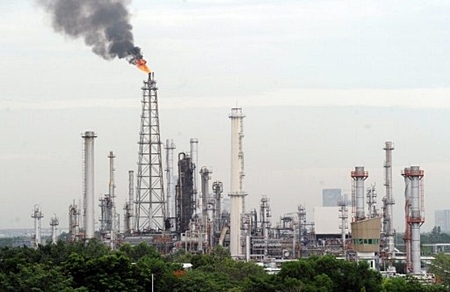BANGKOK, July 4 — Energy Minister Arak Chonlatanon assured the public that the forced closure of Bangchak refinery for 30 days after fire early Wednesday won’t disrupt domestic oil production, affirming that there would be no fuel shortage.
Fire broke out at the Bangchak Petroleum refinery and oil distribution centre in Bangkok’s Phra Khanong district, but the blaze was brought under control in a short time. The authorities are investigating to determine the cause of the fire.

Industry Minister Pongsvas Svasti has ordered a 30-day closure of refinery to allow a thorough investigation of the cause of the fire.
Mr Arak said that after the closure, the 80,000 barrels of oil per day would disappear from the system but the ministry said that volume of oil would not affect domestic oil supply.
There is sufficient oil supply to meet normal demand of the public, he said. There would be no shortage of fuel because of the refinery closure.
Thailand produces about one million barrels of oil products per day at six refineries. Among this, Bangchak produces 99,000 barrels daily or 9.9 per cent of total oil production.
Thailand also has enough reserve oil to absorb the loss of production from Bangchak.
He added that the ministry may ask for cooperation from Thaioil and IRPC to delay their plans to repair their refineries. Thaioil plans to partially close its refinery for repairs Aug 1- Sept 7 while IRPC’s plan was for July 20-Aug 7.
Meanwhile, Bangchak President Anusorn Sangnimnuan said that the company was expected to lose some Bt500-600 million income because of the fire while earnings before interest, depreciation and amortisation (EBIDA) would be reduced by Bt300-400 million from the target of Bt7 billion this year.
He said that Bangchak has imported gasoline base (G-base) to prevent a shortage of gasohol. G-base becomes gasohol when combined with ethanol.
Mr Anusorn said that Bangchak has capacity of producing 80 million litres per month, and the incident would force 40-50 million litres of fuel per month to disappear from the system.




